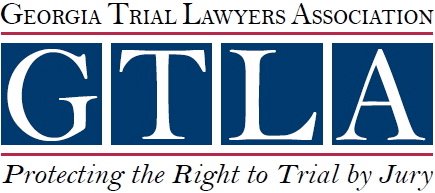Motorcycle accidents in Georgia present unique legal challenges due to the specific state laws governing these incidents. The intricacies of these laws are vital for both motorcyclists and drivers to understand, as they can significantly impact the outcomes of any legal claims following an accident. In Georgia, the law treats motorcycle accidents with particular attention due to the increased vulnerability of motorcyclists on the road. The state has enacted various statutes and regulations to ensure that motorcyclists are protected and that liability is properly assigned in the event of an accident. Understanding these laws is crucial for anyone involved in a motorcycle accident — whether as a rider, driver, or pedestrian.




Insurance Mandates
One of the key aspects of Georgia’s motorcycle laws is the requirement for motorcyclists to carry liability insurance. This insurance is designed to cover damages or injuries caused to others in the event of an accident. Georgia mandates that all motorcyclists carry minimum liability coverage, which includes bodily injury and property damage. This coverage helps ensure that victims of motorcycle accidents are not left without recourse in the event of serious injury or property damage. Additionally, Georgia’s comparative negligence law plays a significant role in determining liability in motorcycle accidents. This law allows for the possibility that both parties involved in an accident may share responsibility, which can affect the amount of compensation awarded.
Helmet Laws
Georgia law mandates that all motorcyclists and their passengers wear helmets while riding. This requirement is in place to enhance the safety of motorcyclists and reduce the severity of injuries in the event of an accident. The failure to wear a helmet can also impact a motorcyclist’s ability to recover damages in a personal injury lawsuit. If it is determined that the lack of a helmet contributed to the severity of injuries, the amount of compensation awarded may be reduced.
Filing a Claim After a Motorcycle Accident
The process of filing a claim after a motorcycle accident in Georgia involves several steps, beginning with reporting the accident to the authorities. It is important to file a police report, as this document can serve as a crucial piece of evidence in any subsequent legal proceedings. The report should include details of the accident, including the parties involved, the conditions at the time, and any eyewitness accounts. Gathering this information can be instrumental in establishing liability and supporting a claim for damages. Following the accident, it is also essential to seek medical attention, even if injuries are not immediately apparent. Some injuries, particularly those involving soft tissue or internal organs, may not manifest symptoms right away. A thorough medical examination can help identify any injuries and provide documentation that can be used in a legal claim.
Determining Fault
In the aftermath of a motorcycle accident, determining fault is a critical component of the legal process. In Georgia, fault is determined based on the concept of negligence, which means that the party who failed to exercise reasonable care is held responsible for the accident. This determination can be complicated in cases involving motorcycles, as there are often disputes over who had the right of way, whether traffic laws were followed, and whether any traffic signals or signs were ignored. Eyewitness testimony, traffic camera footage, and accident reconstruction specialists can all play a role in establishing fault. It is important to note that under Georgia’s comparative negligence law, even if a motorcyclist is found partially at fault for an accident, they may still be able to recover damages, although the amount may be reduced based on their degree of fault.
The Statute of Limitations
Georgia’s statute of limitations is another critical factor to consider in motorcycle accident cases. The statute of limitations is the legal time limit within which a claim must be filed. In Georgia, the statute of limitations for personal injury claims, including those arising from motorcycle accidents, is generally two years from the date of the accident. However, this time frame can vary depending on the specific circumstances of the case. For example, if the accident involved a government vehicle, different rules may apply, and the time limit could be shorter. It is crucial to consult with an attorney as soon as possible after an accident to ensure that all legal deadlines are met and that the claim is filed in a timely manner.
Mandatory Safety Equipment
Another important aspect of Georgia’s laws on motorcycle accidents is the requirement for motorcyclists to have specific safety equipment on their bikes. This includes not only helmets but also proper lighting, mirrors, and mufflers. These regulations are designed to enhance the visibility and audibility of motorcycles, reducing the risk of accidents. Failure to comply with these equipment regulations can result in fines and may also be used as evidence of negligence in the event of an accident. For instance, if a motorcyclist is involved in an accident and their bike was not equipped with functioning lights, this could be used to argue that the motorcyclist was partially at fault.
Legal Obligations
In Georgia, motorcyclists also have the same rights and responsibilities as other drivers on the road. This means that they are required to obey all traffic laws, including speed limits, traffic signals, and signs. However, motorcyclists often face unique challenges that can make it more difficult to comply with these laws. For example, motorcycles are smaller and less visible than cars, which can make it harder for other drivers to see them. This lack of visibility can lead to accidents, particularly in situations where drivers are changing lanes or making turns. Motorcyclists need to take extra precautions, such as wearing bright clothing and using their lights at all times, to increase their visibility to other drivers.
Hiring a Personal Injury Attorney How Long Will a Personal Injury Case Take?Related Videos
The Importance of Legal Representation
Given the complexities of Georgia’s laws on motorcycle accidents, it is essential for victims to seek legal representation as soon as possible after an accident. An experienced attorney can help navigate the legal process, gather evidence, and build a strong case for compensation. They can also negotiate with insurance companies on behalf of the victim to ensure that they receive fair compensation for their injuries and other damages. Insurance companies often attempt to minimize payouts, and having a knowledgeable attorney can be crucial in securing a fair settlement.
Representative Cases
Contact Us Today
If you or a loved one has been involved in a motorcycle accident in Georgia, the legal team at Princenthal, May & Wilson, LLC is here to help. Our attorneys have extensive experience handling motorcycle accident cases and are dedicated to fighting for the rights of accident victims. We understand the unique challenges that motorcyclists face on the road and are committed to helping you obtain the compensation you deserve. Contact us today to schedule a free consultation and learn more about how we can assist you in your recovery journey. Let us help you navigate the complexities of Georgia’s motorcycle accident laws and ensure that your rights are protected.





